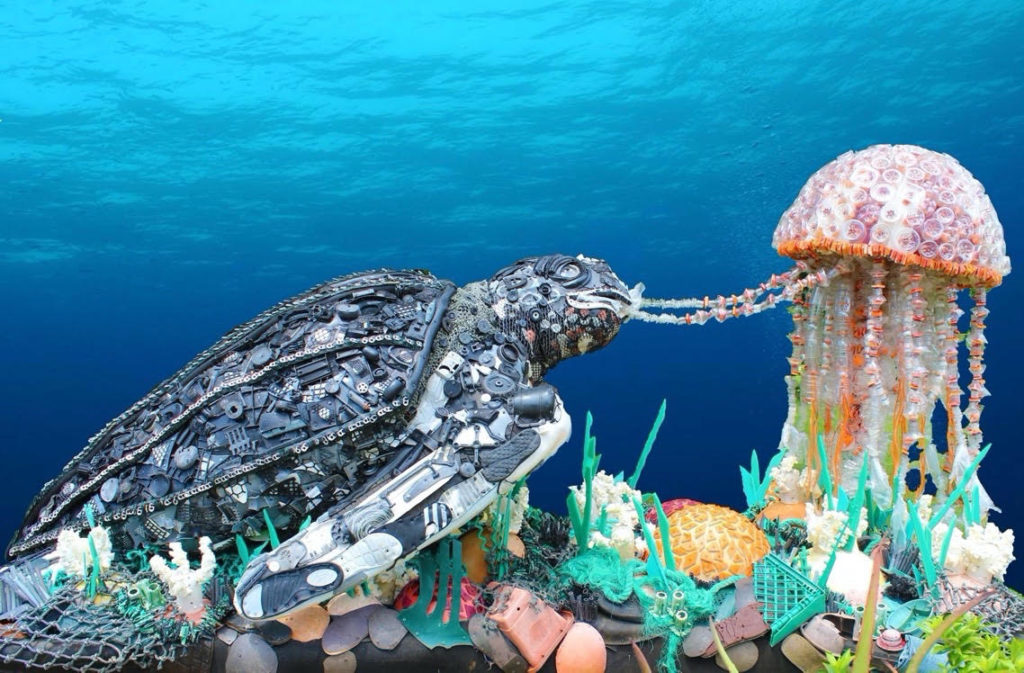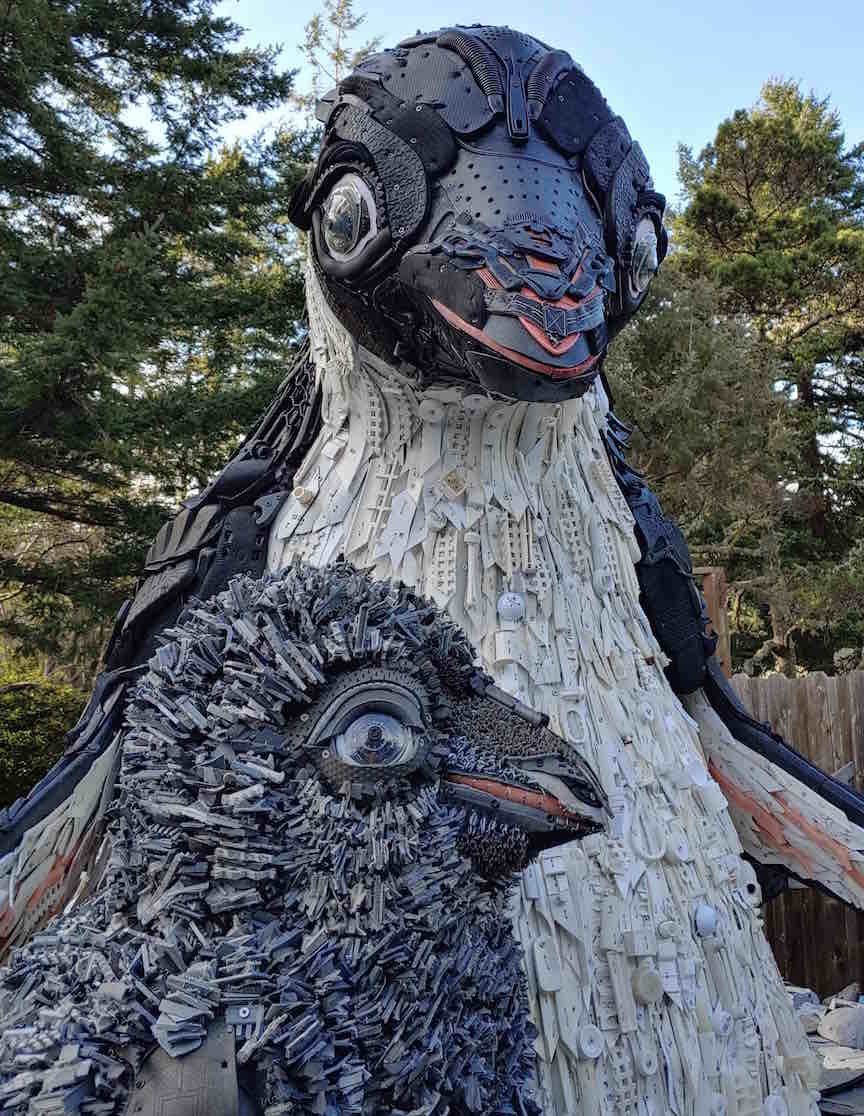
When arts educator Angela Haseltine Pozzi’s husband died from a brain tumor, she sued for medical negligence and won. Afterward, she escaped to the town of Bandon, on the south Oregon coast, where she began her process of recuperation by taking a daily walk on the beach. In doing so, though, she noticed a large amount of plastic accumulating on the shore. “I came to the ocean to heal,” she says. “And what I found was an ocean that needed healing. It just woke me up from a deep depression.”
Using the money from the lawsuit, Pozzi started a community-based art nonprofit, Washed Ashore, which set about building a network of volunteers to collect plastic detritus and use it to create larger-than-life replicas of marine animals. “The artwork has to teach,” Pozzi says. “It can’t just be decorative. All of these things that we use in the sculptures were once owned by someone and then tossed away.” Ten years later, the nonprofit has enlisted the help of more than 14,000 volunteers, and their work has been exhibited across the country, reaching more than 28 million people.
The sculptures are designed to be touched, and they are particularly alluring for children who might, for example, want to play with jellyfish tentacles fashioned out of plastic water bottles. But the pieces tend to draw a more emotional response from adults. “As an artist, you can’t get more powerful than when someone looks at your work and starts to cry,” Pozzi said. “I’ve had people say that they’ll never look at plastics the same way.”


